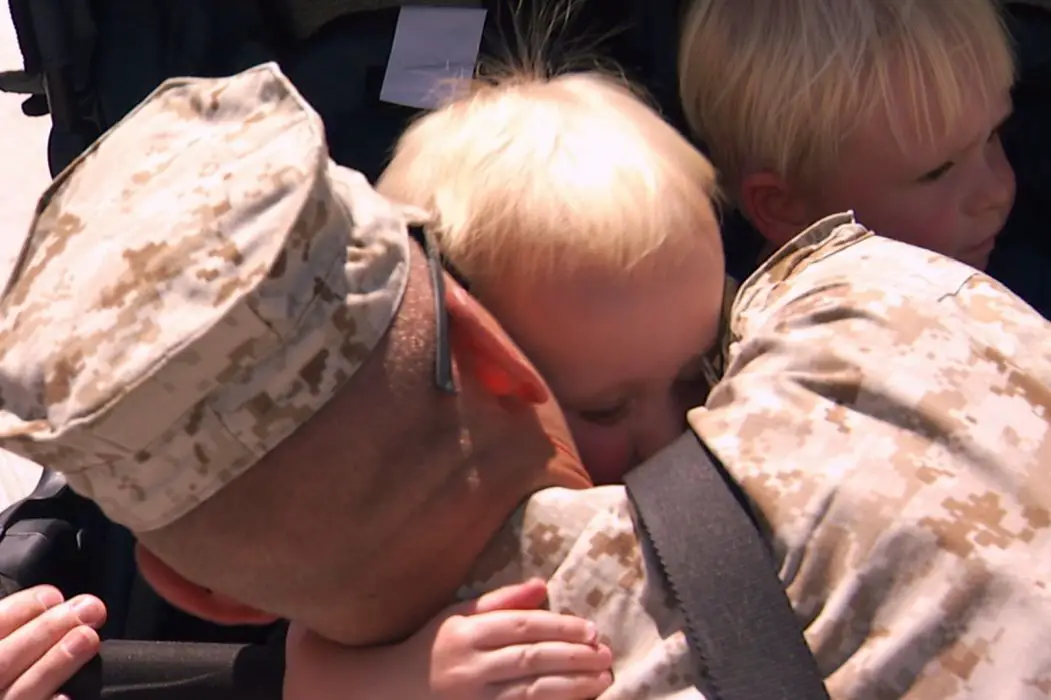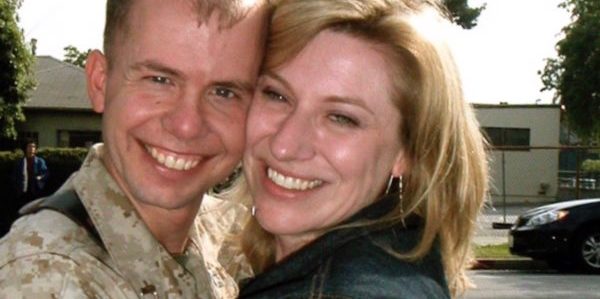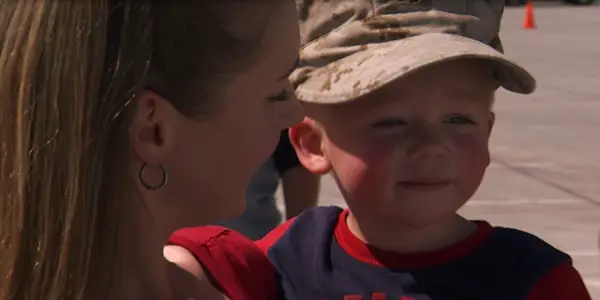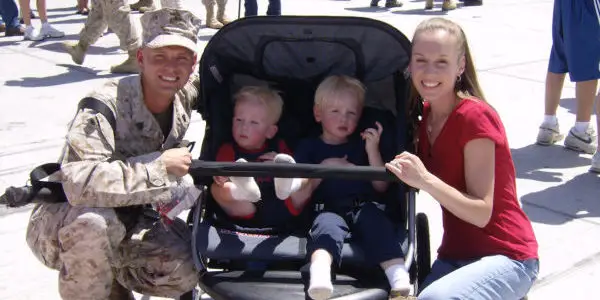WHILE TIME STANDS STILL: A Positive Psychology Film Review

Laurie Agard studied Psychology and Writing in graduate school after…
Director Elena Miliaresis’ 92-minute documentary While Time Stands Still is one of my favorite types of film: a low budget indie created by a persistent artist who perseveres through numerous obstacles, overcomes overwhelming odds, and works relentlessly to tell an engrossing and moving story that she is personally passionate about.
While Time Stands Still is also a wonderful example of my other favorite type of film: a positive psychology movie – a film that helps us examine virtues, and makes us think about how we treat other people. Watching positive psychology movies can be an incredibly pleasurable method for personal growth. When I want to deliberately watch a film in order to look for and learn about character strengths, I turn to Niemiec and Wedding’s “Positive Psychology at the Movies” for big-budget film suggestions. As psychologists Niemiac and Wedding write, “Good art is a sacred experience that touches that ‘unspoiled spot’ inside all of us.”
However, I find it increasingly difficult to find guides for low-budget indie films like Miliaresis’ that so effectively show human condition and provide stories and characters that help us think about how we can use our character strengths to connect more deeply with other people and our world. So, as I watched While Time Stands Still I felt elated at the find.
Behind the Scenes
Full disclosure here, I met director Elena Miliaresis in a Directors Guild workshop over a decade ago. We were both directing independent films. I was finishing mine and she was just beginning hers. We both had less than shoestring budgets – our personal savings and the hope of volunteers. But our missions were different. Hers? To tell the story of American military families.
Spurred to action by her own experience with deployment, Miliaresis wanted to create a documentary which revealed the untold perspective of what it is like to be a family during wartime. On Memorial Day weekend 2004, her own fiancé, a Marine, told her he was deploying to Iraq. Miliaresis had covered world events as a journalist at ABC News but still felt blindsided by the strain of suddenly having a loved one at war. Nothing had prepared her for what it would be like when her (now) husband deployed to Iraq.

“I had worked in news. I had worked in television, but I’d never seen anything that gave me a glimpse into this experience. When Brian deployed, any moment could bring the worst news possible and I was completely helpless to do anything about it. Each day felt like an eternity as I braced myself hoping the day would pass without any bad news. My back went out from the stress. I berated myself for being so weak. What was my problem? Brian was at war and here I was falling apart.”
She knew she must not be alone and felt she could help others by documenting their story. When she approached me at the DGA she was desperate for camera operators, of which I am not, but soldiers were being deployed over the following week and she needed immediate help capturing good-byes and interviewing kids, parents and spouses. I didn’t want to do it. I didn’t have a huge connection to the military community. My almost twenty-year marriage had recently ended and I was newly a single mom. The thought of waking up at dawn and spending hot days and long nights filming dozens of kids weeping good-bye to their mothers and fathers felt like an emotional and financial lose-lose proposition. But something about Miliaresis’ passion and conviction elevated me and made me show up. Ultimately it proved to be a challenging, powerful, and rewarding week but I lost connection to the project after that and went back to finishing my own.
Cut to more than a decade later and I was thrilled to receive a screener and discover that Iraq War Veteran spouse and filmmaker Miliaresis had more than kept her vision alive. Her ten years of producing, filming, and editing had really paid off. While Time Stands Still is a moving, elevating, informing, and enjoyable piece of authentic art filled with heart. And it premiered theatrically May 12.
General audience members not connected to the military community who are looking for a film to watch using a “character strengths lens” won’t be disappointed. Here’s a few tips to assist you in your “strengths-spotting.” Take pride in feeling moved by virtues being portrayed – and pay particular attention to the character strengths of Hope, Love, Resilience, and Honesty.
Long-term Effects of War on Families
Military families and professionals looking for a film to perpetuate healing, will also benefit greatly from Miliaresis‘ unique position as a spouse and filmmaker with expertise in the subject of family deployment. Her in-depth investigation into effects of deployment sheds light onto the long-term effects of war on families, including the Post Traumatic Stress, the Postpartum Depression, and the increased suicidal ideation in family members.
When most people think of war and hear the words Post Traumatic Stress Disorder or suicide, they think of a Soldier. Most don’t think of their spouse. Yet, years of war are taking their toll on military families in ways the public is unaware. Studies show increased mental health disorders in wives, double the risk of postpartum depression, and, most alarmingly, 10 percent of family members consider suicide as a way out.

While Time Stands Still brings urgent attention to the life and death stakes war imposes on families revealing what it is like to be a military family at home during wartime. With nearly 100 interviews from Air Force, Army, Marine Corps, Navy, National Guard, and Reserve spouses, parents, and children across the country and experts in the fields of psychiatry and medicine, While Time Stands Still is an unprecedented investigation into the effect combat deployment has on families and the grit and perseverance it takes to heal from these wounds of war. By visibly exposing the need of available mental health support for families, this is a film that can be used as a catalyst for change and may indeed help save lives.
Honesty
Above all else, writer, director, producer Elena Miliaresis’ journey is revealed with incredible honesty.
According to The VIA Institute on Character honesty is classified under the virtue of Courage, which describes emotional strengths that involve the exercise of will to accomplish goals in the face of opposition, external or internal. All kinds of courage are represented in While Time Stands Still: Bravery, Perseverance, and Zest, but I was particularly drawn to that of Honesty as it relates to integrity and authenticity. According to renowned positive psychologists Peterson & Selegman, the character strength of honesty can be defined as “speaking the truth but more broadly presenting oneself in a genuine way and acting in a sincere way; being without pretense; taking responsibility for one’s feelings and actions.”

Through two grueling wars, over three million wives, husbands, mothers, fathers, sons, and daughters have quietly kept the home fire burning – causing trauma which is seldom acknowledged. This isn’t a typical war film. Miliaresis turns the camera around and points it on the families, showing what it takes to survive on the home front while the bullets fly in the war zone. Watching the film it becomes evident how much our media and cultural narratives about war have all but ignored the role that women and families have in our country’s history. Miliaresis’ is a story rarely seen on film: the story of what it’s really like to be a wife and a mother during wartime, the courage needed to be a family during wartime, and the difficult road to healing afterwards.
With the honesty and intimacy of a home movie, Miliaresis begins the film traveling to Twenty-nine Palms, California to a Marine Corps base in the Mojave Desert. Here she meets two wives, Brandi Albritton and Denneny Cochran, right before their husbands are deployed to Iraq. Twenty-six year old Denneny met her husband, Lance Corporal Jordan Cochran, in college. After September 11th, she supported his decision to leave teaching to join the Marines. She quit her own job as an insurance professional, and sold their house in order to move to his new duty station along with their dog Paco.
After months of training and preparation, the day of departure arrives. Standing in a sweltering parking lot, Denneny clutches their Chihuahua, and makes jokes to lighten the situation.
Brandi, a twenty-four year old mom of two toddlers, is faced with her husband, Sergeant Aaron Albritton’s second deployment in less than two years. Brandi and Aaron were high school sweethearts from a small town in central Florida. Brandi wipes her tears, trying to be strong for her children. Still, two-year old Elijah cries inconsolably for his dad, not wanting him to leave. As the buses pull away, an eerie silence hangs in the air. No one knows if they will ever see their loved ones alive again.

A fog of worry and instability characterizes the days that follow. Heartfelt interviews from families describe the fear, the palpable absence. In this emotional chaos, spouses must shoulder the responsibility of the household alone, and become single parents. Brandi looks for ways to keep Aaron fresh in the minds of her children. She makes pillowcases for them to sleep on with their daddy’s picture on it.
Work can be a helpful distraction, but we discover that over fifty percent of military spouses are unable to find employment. Though a college graduate with experience, Denneny settles for a job as a lifeguard. She works herself to exhaustion, in the hope that time will go by faster. As the weeks slowly turn into months, Denneny gains confidence, and finds solace in her routine, but Brandi struggles. Her two year-old, Elijah, has night terrors; he begins to stutter. With Aaron in a combat zone, she can’t rest. The anxiety and sleep deprivation drive Brandi to the edge. She wishes she could sleep – forever…
The anguish Brandi suffers is not unique. Families are under extreme pressure. Any moment a call could bring news of injury. Every knock on the door could be news of death. Though everything looks normal on the outside, the stress inside can be overpowering as mom, Cyd Deathe, articulates, “There was no sleeping, there was just a lot of crying and a lot of worrying and a lot of praying.” Knowing that your loved one could be killed at any moment is debilitating. This strain often results in physical repercussions like back pain, heart palpitations, and many other unexpected ailments for which families are unprepared. Even during the countdown to homecoming, families can’t let their guard down. Denneny and Brandi don’t dare breathe a sigh of relief.
In addition to their own persistent pain, families often have to deal with devastating circumstances. Over 50,000 Service Members have been wounded we learn. Over 6,000 Service Members have been killed. Families struggle to cope. Mom Roberta Kilpatrick lives in terror everyday after her son, diagnosed with PTSD, attempts suicide. Will he try again? What if he succeeds? She is afraid to lower her defenses.
Even when spouses return, after a blissful reunion and honeymoon period, the process of reintegration can be unexpectedly long. Many families have little time to heal. Wives get pregnant and their husbands’ deployments are imminent. In While Time Stands Still this happens to young Brandi and their baby is born two weeks before her husband again departs. Soon, Brandi is alone again. This time, she is caring for three children under the age of five on her own. She doesn’t know her increased risk of postpartum depression. She doesn’t know that 15 percent of those with untreated postpartum depression contemplate suicide. She fails to get the proper care. She has serious thoughts of killing herself and her children.
“I felt broken,” she tells the camera after she returns from a crisis center. “I could barely get the baby her bottle. The boys were being loud, and I just wanted them to stop. I started thinking horrible thoughts that I don’t normally think of like hurting my children and hurting myself… I just kept asking, ‘Will I be normal again?’ and I kept crying cause I just felt like something in my brain had broke.”

Because of Brandi’s condition, Aaron gets out of the Marine Corps. He doesn’t have a job lined up, and the family doesn’t have health insurance. Brandi is unable to get the help she needs. In a deep depression, she attempts suicide. Luckily, she is rushed to the hospital and survives. One step at a time, over the course of several years, Brandi and her family repair the wounds. Unfortunately, reports of spouse distress are not properly tracked in the United States and without the data, awareness and treatment do not happen. While Time Stands Still brings these vital issues to the forefront.
While Time Stands Still: Love and Hope
According to The VIA Institute on Character love is classified under the virtue of Humanity, which describes strengths that manifest in caring relationships with others. Hope is classified under the virtue of Transcendence, and can be thought of as optimism, future-mindedness, and “expecting the best in the future and working to achieve it; believing that a good future is something that can be brought about.” Using film to recognize and build character strengths like love and hope can be a new way of identifying and strengthening our capacity to love, be loved, and feel hope.
See if you can spot the character strengths of Love and Hope. Which is most noticeable?
While Time Stands Still demonstrates that with support different outcomes are possible, and the personal evolution through harrowing times of the women in this film is a testament to the indomitable power of the human spirit. The journey to healing can be a long one, yet, as Miliaresis and the families in While Time Stands Still demonstrate, the power of the human spirit can transform in the darkest of times into hope and light.
How do you think our entertainment industry’s take on war has impacted our society? What are the negative consequences of our lack of knowledge about its impact on military families? Do you think films influence our cultural narrative? Do you think a lack of female directors has influenced our cultural narrative surrounding war? If so, what is our responsibility as citizens, filmmakers, movie goers, and film reviewers? Or do we have one?
While Time Stands still is available through the film’s website.
Does content like this matter to you?
Become a Member and support film journalism. Unlock access to all of Film Inquiry`s great articles. Join a community of like-minded readers who are passionate about cinema - get access to our private members Network, give back to independent filmmakers, and more.
Laurie Agard studied Psychology and Writing in graduate school after becoming a Director member of both the Directors Guild of America and the Academy of the Television Arts and Sciences. She associate produced ABC’s Secret Millionaire and wrote, directed, and produced two independent films that premiered on HBO, ABC Family, we TV, as well as networks such as Fox Latin America, Sky TV, Starz, Showtime, and Encore in 45 territories around the world. Her films have received New Comer of the Year awards and Best Children's Feature awards from prestigious organizations such as Kids First!, Hollywood Youth in Film, and the New York Film and Television Festival. She co-directed the Directors Guild of America’s first ever tribute film for and about its female members.













